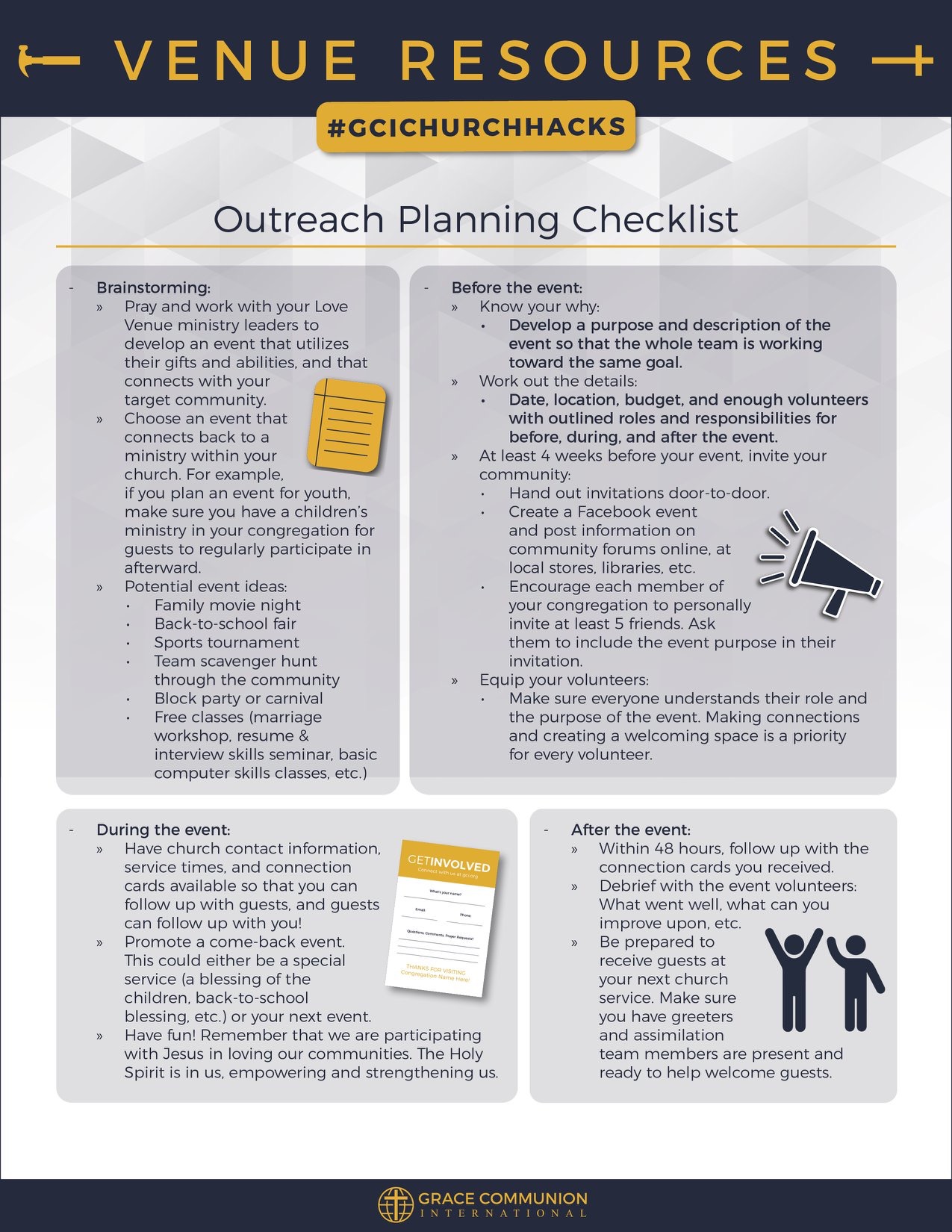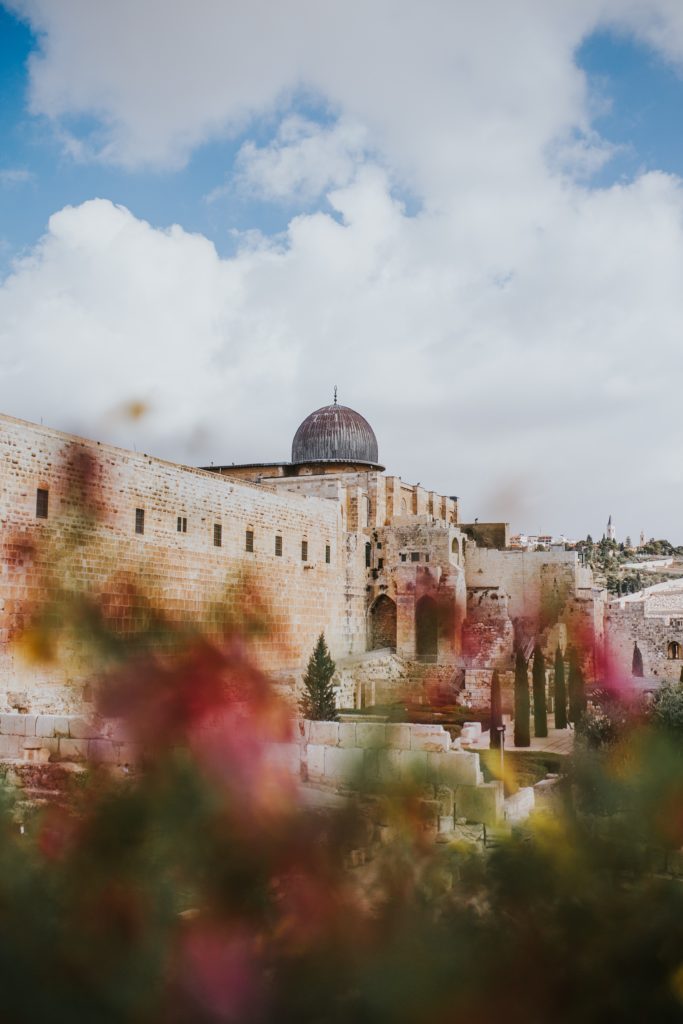Readings: Luke 24:44–53 • Psalm 47:1-9 or 93:1-5 • Acts 1:1-11 • Ephesians 1:15–23
This week’s theme is Ascension Sunday. Prior to his ascension, Jesus reminded the disciples that the law and the prophets were written about him, and he would send the “promise of the Father” to them. Psalm 47 and 93 tells us our Lord is “robed in majesty” as King over all the earth. Acts 1 describes the ascension as well as a reminder that Jesus will return in the same way he ascended. Paul prays for the believers in Ephesus, that they would know Jesus, who is the fulfillment of all things.
Forward and Upward
Luke 24:44-53 and Acts 1:1-11
Introduction: You may want to ask what comes to mind when people think of the Bible. What is their favorite story?
Often when I talk with someone about the Bible, what comes to their mind are stories from the Old Testament. There are many stories, songs, and prophetic writings in the Old Testament talking about the story of Israel—their beginning as a nation, their rescue from Egypt, the various kings, judges and prophets, their capture, their freedom. It’s a fascinating story that seems to end rather abruptly when a remnant returns from exile to the promised land, still under the control of another powerful nation.
The Old Testament, with its stories of the people who died, whether by war, famine, or natural causes, seems to end with little forward or upward movement. There seems to be no resolution to the injustice, or the failures of kings, judges, or prophets. The story seems to end with God’s people longing for deliverance—seeking a Messiah. These were the writings used by God’s people for years as they waited for the Messiah. For some, these are still the writings they focus on because they rejected the Messiah when he came.
They do not see that the Old Testament isn’t just the story of Israel—the over-arching story is the story of God himself. When we read the Old Testament, looking for manifestations of God’s presence and power, we find the Father, Son, and Spirit are at work from creation to freedom from exile. The God of the Old Testament was faithful to his covenant and to his people. He was always at work, renewing his covenant with them when they fell short, sending his prophets to call them back into faithful relationship with himself and to give them hope in the midst of despair.
The God who was hidden from their view, was to be made manifest in an amazing and unexpected way—in the person of an infant, born to a virgin, and placed in a manger.
When God personally entered the universe he created, he came in such a way that he experienced every part of our human experience, even to the point of a cruel and horrific death at the hands of the humans he lovingly created. This God in human flesh, Jesus Christ, participated in our humanity by living as we live, shared in our death by taking on the death we deserved to die, and was buried in a tomb. Even though Jesus tried to prepare them for Sunday morning, the disciples were still amazed to find him alive again after he rose from the grave.

After rising, he met with his disciples and said:
These are My words which I spoke to you while I was still with you, that all things which are written about Me in the Law of Moses and the Prophets and the Psalms must be fulfilled (Luke 24:44 NASB).
In other words, “This is what I’ve been telling you all along.” The story of the Old Testament—this collection of law, prophets, and psalms—was fulfilled in Jesus Christ, in his life, death, resurrection, and ascension. The ascension—still future from when Jesus said this—was a critical part of the fulfillment of what was written long ago.
Then He opened their minds to understand the Scriptures, and He said to them, “Thus it is written, that the Christ would suffer and rise again from the dead the third day, and that repentance for forgiveness of sins would be proclaimed in His name to all the nations, beginning from Jerusalem. You are witnesses of these things” (Luke 24:45-28 NASB).
When the living Word came to earth to live as one of us, he made substantial and understandable what God had spoken to his people about himself—that he was and is a loving, gracious, and faithful God. As God in human flesh, Jesus was someone who could be seen, heard, and touched, and was someone who lived in unbroken loving fellowship with his Abba, God the Father.
Knowing the disciples still struggled to see what was really going on, Jesus opened their minds to help them understand. Then he said the following:
“And behold, I am sending forth the promise of My Father upon you; but you are to stay in the city until you are clothed with power from on high” (Luke 24:49 NASB).
Apart from the intervention of God himself, we cannot know or understand the truth about who God is and who we are in Christ. To understand that Jesus came to earth to live our life, die our death, and to rise again bringing us with him from the grave, requires an intervention. This intervention is the promise of the Father—the Holy Spirit. Jesus told them to stay in the city until they received that promise.
And He led them out as far as Bethany, and He lifted up His hands and blessed them. While He was blessing them, He parted from them and was carried up into heaven (Luke 24:50-51 NASB).
When Jesus ascended to heaven, he took all humanity with him—so that each of us is hidden with Christ in God. There is a distinctive forward and upward movement to each of our lives as we participate in Christ’s ascension. By the Spirit, we are to keep our minds and hearts on things above, not on things on this earth. When we come to Christ by faith, we turn away from the past and turn toward our eternal future with Christ, living and walking “in heavenly places in Christ Jesus.”
Jesus’ purpose in returning to the Father was to send the Holy Spirit, so we could be effective witnesses to the glory and goodness of God. The Holy Spirit—the promise of the Father—enables us to understand that Jesus is our Savior and helps us to know the heart and will of our Abba, our Father in heaven, so we can bear witness to the truth about Abba and Jesus Christ.
The Holy Spirit opens our minds and changes our hearts. The Spirit of God brings us to repentance and faith as we respond to his work in our hearts and minds, inspiring us to turn to Christ. As we grow in our participation in Christ’s nature by the Spirit, we become more and more effective witnesses to the story and glory of God as demonstrated in Jesus Christ.
Part of the fulfillment of all those things written about our Messiah Jesus Christ was that God’s word would go out into all the world, so that one day all people would know and worship God. We are continuing the story written so many millennia ago in the Old Testament. We become part of the new story—”living letters,” as the apostle Paul describes God’s people. As we abide in Christ, resting in him, drawing on his strength and power, we become effective witnesses to the gospel. This is our participation in God’s story which began so long ago.
It’s important to note that our participation isn’t just observation. Jesus told his disciples they would be “clothed with power from on high” (v. 49). We don’t need power to simply observe, but we are given power to participate in this great story. We are included in Jesus’ ascension.
The apostle Paul longed for the people of God to understand this. To believers in Ephesus, Paul said his prayer was that:
The God of our Lord Jesus Christ, the Father of glory, may give to you a spirit of wisdom and of revelation in the knowledge of Him. I pray that the eyes of your heart may be enlightened, so that you will know what is the hope of His calling, what are the riches of the glory of His inheritance in the saints, and what is the surpassing greatness of His power toward us who believe (Eph. 1:17-19 NASB).
That hope, that great power, is the Holy Spirit living in us. And the Holy Spirit is not just a power, but a person—the third person of the Trinity—to be worshiped and adored just as we worship the Father and the Son.
When we are filled with the Spirit, we are filled with God’s life and being—we are in unity with who we really are as God’s children, made in his image. When God goes to work in us by his Spirit, he does amazing and wonderful things. But he also enables us to wrestle with our brokenness and our failures and shortcomings. He helps us in our struggles and suffering by helping us feel the presence of the Living Lord. The Spirit of God empowers us to speak the words of life to those around us whom we encounter during our everyday life.
The power and presence of the living God in the person of the Holy Spirit is at work in us because Jesus rose from the dead and ascended to heaven. Jesus didn’t just float away and leave us stranded, hopelessly lost in our broken and sinful world. No, he ascended to his Father’s side bearing our humanity with him, and then he sent the Spirit out on all flesh. We are brought into intimate relationship with God himself by the indwelling Holy Spirit.
There is power in the indwelling presence of God by the Holy Spirit. The apostle Paul talked about the surpassing greatness of this power:
These are in accordance with the working of the strength of His might which He brought about in Christ, when He raised Him from the dead and seated Him at His right hand in the heavenly places, far above all rule and authority and power and dominion, and every name that is named, not only in this age but also in the one to come. And He put all things in subjection under His feet, and gave Him as head over all things to the church, which is His body, the fullness of Him who fills all in all (Eph. 1:19-23 NASB).
The Spirit is at work in every human heart, bringing about the perfect response to Abba and is drawing us each into the truth of who we are as the beloved, redeemed children. The message of the gospel is repent and believe—turn away from ourselves, our fallen ways of living and being, our broken and evil views of God and one another, and to turn to Jesus Christ, trusting in his perfect relationship with his Abba. Jesus responded perfectly to his Father on our behalf, and he calls us by the Spirit, and through the witness of his people, to faith in him.
As you can see, the stories we read about in the Old Testament—which were fulfilled in Jesus Christ—opens out into a continuing story—a story that includes you and me in the plotline. Jesus has come, fulfilled all the Old Testament Law, Prophets, and Writings, and now, seated at the right hand of Abba in glory, is writing a brand-new story with new characters and plot twists. We participate in this great story as we trust in Christ, walk in the Spirit, in loving relationship with God and one another.
On this day, as we commemorate the Ascension, we look upward—seeing what the ascension means for us—and we look forward to the fulfillment of Jesus’ promise to return and restore all things. As participants in the already, not yet, of God’s kingdom, we look forward with hope and anticipation, while living with our eyes on Jesus, our ascended, glorified Lord and King.
Prayer:
Thank you, Abba, for sending your Son Jesus, to free us from sin and death, and to bring us up into your life as Father, Son, and Holy Spirit. Thank you that Jesus is at work now, making a place for us, moving us forward day by day into our true being as your beloved, redeemed children. We thank you for the promise that by your Spirit you will finish what you have begun in us. May we be filled with your power and presence, Spirit of Truth, and overflow with your love, Abba, so we may powerfully and effectively speak the words of life to all those around us, through Jesus our Lord. Amen.
- What is your favorite Bible story and why?
- How do you think your favorite Bible story points to Jesus?
- Put in your own words what it means that you are included in Jesus’ death.
- That you are included in his life
- That you are included in his ascension
- How would you explain to someone that the Holy Spirit opens your heart and changes your mind?
- Read Psalm 47 and share what this passage says to you. Does it make you want to clap your hands? Shout for joy? Sing praises?
- What does it mean to you to be part of God’s continuing story?









 So rather than the passage being about our radical commitment to the kingdom, we see a radical commitment of Jesus to establish the kingdom of God and our salvation. This is what we will focus on today.
So rather than the passage being about our radical commitment to the kingdom, we see a radical commitment of Jesus to establish the kingdom of God and our salvation. This is what we will focus on today.